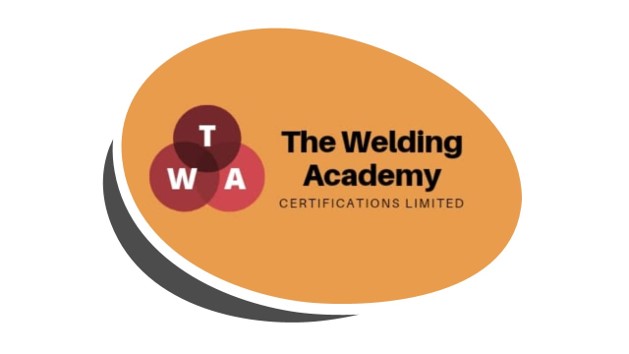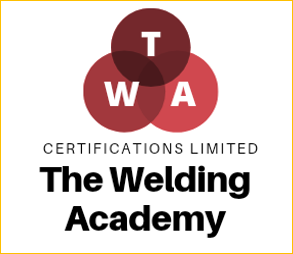Certified Welder Coding and Qualification Training Course
Coded welder training courses are bespoke certified training programmes built around each candidate. Following an initial weld assessment of each candidate, the programme set ensures you develop sufficiently to meet the requirements of ASME IX, ISO 9606, BS 4872, Lloyds welding coding standards.
Tutored welding practice tailored to individual needs can include lap, fillet and butt welds in sheet, plate, sections and pipe for various thickness ranges in relevant welding positions. We will design a programme based on the welding standard, the required welding process, material, thickness, weld joint and welding positions. You could move onto one of our intermediate, advanced programmes or coded welding Certified programmes.
Coding and Qualification Training Course Duration
The programmes and duration are designed to address your specific needs and can comprise any combination of welding processes (MMA, TIG, MIG/MAG, FCAW) and joint configurations, as required.
Which process will I be coded in?
You will choose one or more ARC welding process, including a MIG Welding coding (GMAW), MAG welding coding (GMAW), TIG welding coding (GTAW), Flux cored welding coding (FCAW). You will then choose the material and welding configuration for the process that you have chosen, and then you will be trained for those specific requirements.
Welding Coding Standards
Training can be provided for a wide range of welding standards and qualifications, including:
- BS 4872 Class 2 welder coding qualification – – Delivered, assessed and tested in our fully accredited training centre.
- ISO 9606 Class 1 welder coding Qualifications– Delivered and assessed in our fully accredited training centre. Non-destructive and destructive testing is carried out at a UKAS accredited laboratory.
- ASME IX Class 1 welder coding Qualifications– Delivered and assessed in our fully accredited training centre. Non-destructive and destructive testing is carried out at a UKAS accredited laboratory.
Which Welder Coding Course Should I take?
We can help you ascertain which course would best suit your needs. We do this via a welding skills analysis before the programme commencing.
Welder Coding Training Course Outline
- Welding specific Health & Safety
- Welding Theory and principles
- Interpreting welding drawing symbols
- Identifying weld defects
- Set up of equipment and welding practice
- Weld types – flat straight welds, (left & right), fillets, butt welding and vertical welding
- BS 4872, ASME IX or BS EN ISO 9606 coding test
Welder Coding Mock Weld Test Assessment
You will carry out a mock BS 4872, ASME IX or BS EN ISO 9606 or Lloyds coding assessment following written instructions. Then the welded joint is subject to visual, or surface inspection, as well as a destructive bend test, nick break fracture test and macro, etch. Non-destructive testing can be arranged at an additional cost.
Can I get Coded After the course?
Yes, you can take one of our tests after the course has finished or multiple tests for multiple processes or standards depending on your needs. Standards include:
- BS 4872 Class 2 welder coding qualification
- ISO 9606 Class 1 welder coding Qualifications
- ASME IX Class 1 welder coding Qualifications
- TIG Welding Standards
- MIG/MAG Welding Standards
- MMA Welding Standards (Stick)
The Welding Academy Coding Training Centre
The Welding Academy is fully approved by the TWI (The Welding Institute) to deliver coding qualifications. All tutors, examiners, and inspectors at The Welding Academy hold the relevant CSWIP qualifications, allowing us to conduct welder qualification testing at our sites.
For a free, no-obligation chat about this course, please call 0800 246 1483 or enquire via email.
Frequently Asked Questions
What is a Coded Welder?
A coded welder is a terminology used for an approved welder. The qualification or standard you are approved for will not mention the term coded welder.
The name coded welder is a technical term to describes a time served and skilled welders. Who will have completed a welder approval testing to a specification or standard such as ASME IX?
For the UK approvals are conducted to BS EN ISO standards and for the USA the ASME IX and AWS standard.
How long do welder or welding codings last?
Welder coding certificates must be signed every six months by a suitably qualified person to confirm the welder is still producing welds of the required standard. You must be formally re-tested at least every two years to ensure a continuity log.
What do welders earn the UK?
For a welding apprentice, the starting hourly rate is usually set at or just above national minimum wage, for a welder that is starting a career after an intensive induction course such as our intermediate programme the starting salary ranges for 13-16 per hour. For experienced welders, that sky is the limit; however, it depends on market conditions and your experience. Welding is a real skill, and it comes with time on the job. You will need to earn your stripes to get well paid in welding.
What colleges are good for welding and Where can I get welding certification?
If you are looking for an apprenticeship or intensive welding training to gain employment fast, then look no further than The Welding Academy the 4.9 stars rated Welding College in the UK. We operate from our welding test location of Chester, Cheshire that has a vast range of hotels and Airbnb accommodation. All our programmes are practical and are delivered by an intensive teaching method.
What qualifications does a welder need?
This is a difficult question to answer as we meet lots of welders that have been welding for 20 years plus without qualifications. However, with the industry moving towards more regulation, welders are seeking qualifications to prove competence and to gain employment. You will need some form of assessment and certification to prove your competence. There are lots of ways to demonstrate proficiency:
- Time Served Apprenticeship
- City and Guilds qualifications at Beginners, Intermediate and Advanced Awards, diplomas and NVQs
- Welder Competence Certification
- British Standard 4872 Class 2 Welder Coding Qualification
- ASME IX Class 1 Welder Coding Qualification
- ISO 9606 Class 1 Welder Coding Qualification
What is ASME, ISO 9606 Welding code or standards?
In short, these are the quality standards that the welding procedure is written to meet and that welders are tested against. When you have followed a welding procedure that has been written to meet one of these standards and the weld has been tested using NDT and DT methods (non-destructive and destructive testing then you will be a coded welder. For more information on coded welding, please click this link.
What is 6g coded welding?
This usually refers to welding pipe in the 6g position. Click the link to see the different positions in welding. 6g is thought to be a difficult and awkward position, and when you are coded in the 6g position, it covers you for a multitude of less difficult welding positions. You can be coded in 6g using BS 4872, ASME IX or ISO 9606 standards.
What is ASME coded welding?
This refers to someone who has been tested against the ASME IX standard, and the Welded joint has past destructive tests and the Xray (bomb). The welder could be referred to as welding at ASME standard or an ASME coded welder. For more information on coded welding, please click this link.
Who issues welding certification?
It depends on the qualification, but they include, City and Guilds, The Welding Academy, TUV, LGRWC, Zurich and TWI.
Welding and Welder Certification classes near me
We operate from our welding test location of Chester, Cheshire that has a vast range of hotels and Airbnb accommodation. All our programmes are practical and are delivered by an intensive teaching method.
Will this allow me to get a CSCS card or a Welder Card?
No! You will need to gain at least a level 2 NVQ. We run this programme as a blended learning programme or as an intensive programme at our Chester Welding Academy.
What are the different types of certification?
There are at least four main types of welding certification that you can obtain with the welding academy. These are:
- Regulated City and Guilds Qualifications – Delivered and assessed in our fully accredited training centre.
- Welding Competency certification – Delivered and assessed in our fully accredited training centre.
- BS 4872 Class 2 welder coding qualification – – Delivered, assessed and tested in our fully accredited training centre.
- ASME IX and ISO 9606 Class 1 welder coding Qualifications– Delivered and assessed in our fully accredited training centre. Non-destructive and destructive testing is carried out at a UKAS accredited laboratory.
Welding Coding Courses Northwest and Nationwide
We operate from our welding test location of Chester, Cheshire that has a vast range of hotels and Airbnb accommodation. All our programmes are practical and are delivered by an intensive teaching method.


